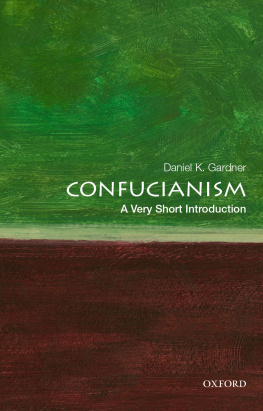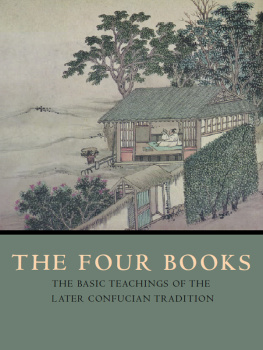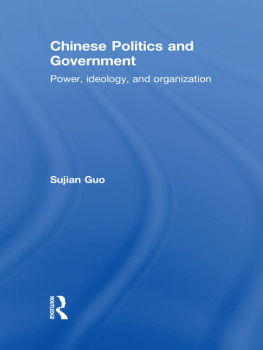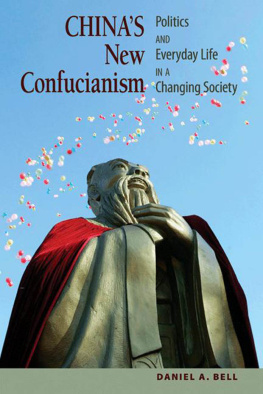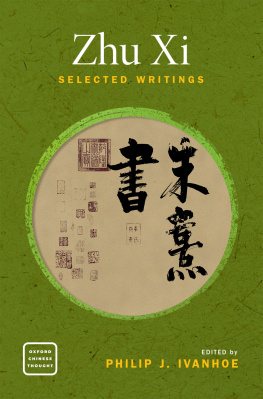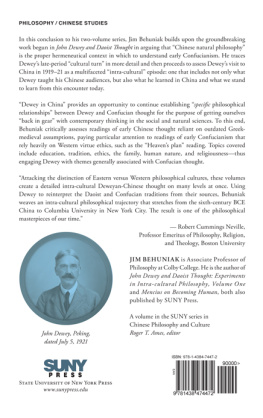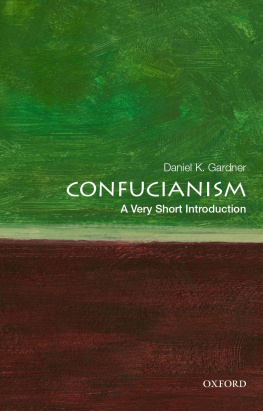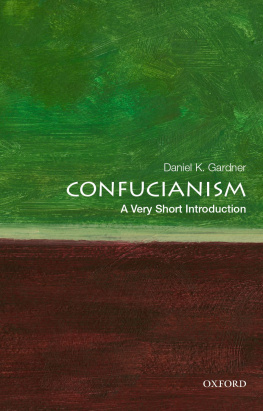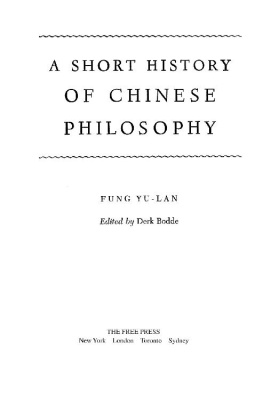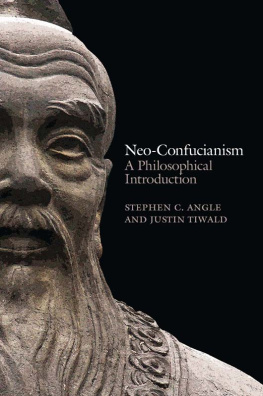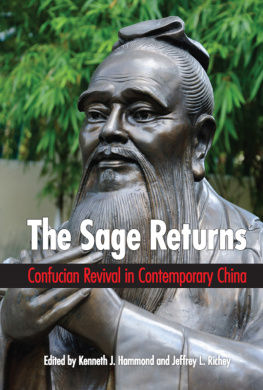Daniel K. Gardner - Confucianism: A Very Short Introduction
Here you can read online Daniel K. Gardner - Confucianism: A Very Short Introduction full text of the book (entire story) in english for free. Download pdf and epub, get meaning, cover and reviews about this ebook. year: 2014, publisher: Oxford University Press, genre: Religion. Description of the work, (preface) as well as reviews are available. Best literature library LitArk.com created for fans of good reading and offers a wide selection of genres:
Romance novel
Science fiction
Adventure
Detective
Science
History
Home and family
Prose
Art
Politics
Computer
Non-fiction
Religion
Business
Children
Humor
Choose a favorite category and find really read worthwhile books. Enjoy immersion in the world of imagination, feel the emotions of the characters or learn something new for yourself, make an fascinating discovery.
- Book:Confucianism: A Very Short Introduction
- Author:
- Publisher:Oxford University Press
- Genre:
- Year:2014
- Rating:3 / 5
- Favourites:Add to favourites
- Your mark:
Confucianism: A Very Short Introduction: summary, description and annotation
We offer to read an annotation, description, summary or preface (depends on what the author of the book "Confucianism: A Very Short Introduction" wrote himself). If you haven't found the necessary information about the book — write in the comments, we will try to find it.
This volume shows the influence of the Sages teachings over the course of Chinese history--on state ideology, the civil service examination system, imperial government, the family, and social relations--and the fate of Confucianism in China in the nineteenth and twentieth centuries, as China developed alongside a modernizing West and Japan. Some Chinese intellectuals attempted to reform the Confucian tradition to address new needs; others argued for jettisoning it altogether in favor of Western ideas and technology; still others condemned it angrily, arguing that Confucius and his legacy were responsible for Chinas feudal, backward conditions in the twentieth century and launching campaigns to eradicate its influences. Yet Chinese continue to turn to the teachings of Confucianism for guidance in their daily lives.
In addition to a survey of the philosophy and history of Confucianism, Gardner offers an examination of the resurgence of Confucianism in China today, and explores what such a revival means for the Chinese government and the Chinese people.
About the Series:
Oxfords Very Short Introductions series offers concise and original introductions to a wide range of subjects--from Islam to Sociology, Politics to Classics, Literary Theory to History, and Archaeology to the Bible. Not simply a textbook of definitions, each volume in this series provides trenchant and provocative--yet always balanced and complete--discussions of the central issues in a given discipline or field. Every Very Short Introduction gives a readable evolution of the subject in question, demonstrating how the subject has developed and how it has influenced society. Eventually, the series will encompass every major academic discipline, offering all students an accessible and abundant reference library. Whatever the area of study that one deems important or appealing, whatever the topic that fascinates the general reader, the Very Short Introductions series has a handy and affordable guide that will likely prove indispensable.
Daniel K. Gardner: author's other books
Who wrote Confucianism: A Very Short Introduction? Find out the surname, the name of the author of the book and a list of all author's works by series.

